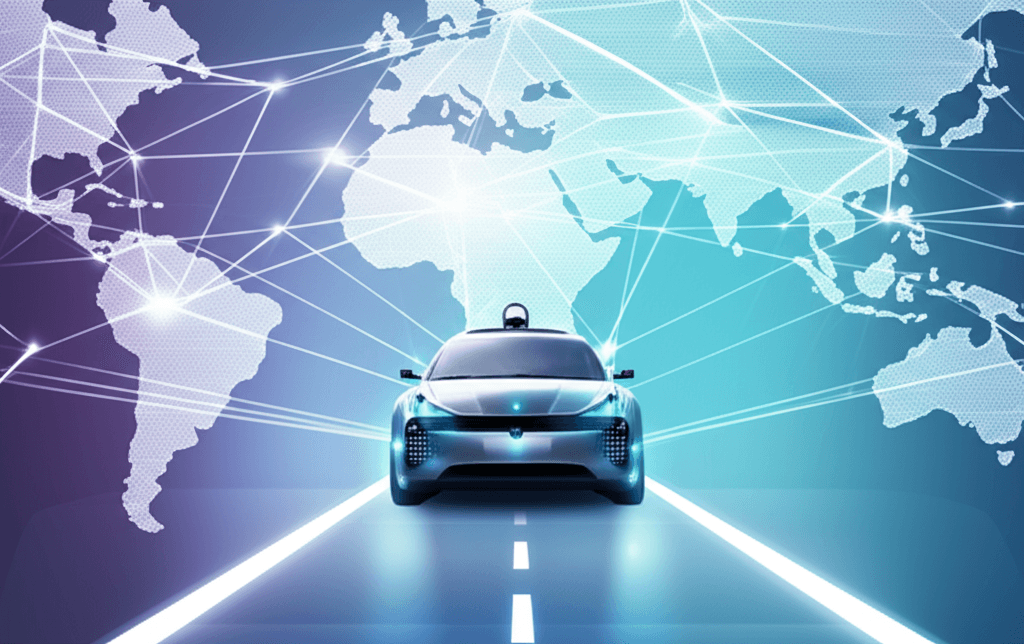Uber and Baidu Partner to Deploy Thousands of Robotaxis Globally
Uber and Baidu partner to launch thousands of robotaxis globally, rapidly accelerating driverless ride-hailing outside US and China.
July 15, 2025

Uber and Baidu have announced a landmark multi-year strategic partnership to deploy thousands of Baidu's Apollo Go autonomous vehicles on Uber's global ride-hailing platform.[1][2][3] This collaboration signals a significant acceleration in the global race to commercialize autonomous mobility, uniting one of the world's largest mobility platforms with a leading autonomous driving technology developer.[4] The initial phase of the deployment is set to begin later this year in select cities across Asia and the Middle East, with plans for further expansion into other international markets.[5][2] The agreement notably excludes the U.S. and mainland China, a strategic decision that acknowledges the distinct competitive and regulatory landscapes in those key markets while still allowing for substantial global growth.[2][6] For Uber, this move reinforces its strategy of acting as a platform and facilitator for autonomous vehicle technology rather than developing the cars itself, a pivot from its earlier, more capital-intensive approach.[7][8]
The core of this partnership lies in the integration of Baidu's established Apollo Go robotaxi service into the Uber app.[5] Users in the selected launch cities who request a qualifying Uber trip may be offered the option to ride in a fully driverless Apollo Go vehicle.[2][3] Baidu's Apollo Go is already a major player in the autonomous vehicle space, operating the world's largest autonomous ride-hailing network with a fleet of over 1,000 fully driverless vehicles across 15 cities.[5][2][4] The service has already provided more than 11 million rides to the public as of May, demonstrating a significant level of operational experience and a robust safety record.[2][4][3] The vehicles to be used in the initial rollout are Baidu's sixth-generation Apollo Go robotaxis.[1][5] This collaboration allows Baidu to leverage Uber's massive user base and global presence to scale its technology internationally without the need to build a consumer-facing platform from the ground up.[6]
The strategic rationale for both companies is compelling. For Baidu, it represents a major milestone in the global deployment of its autonomous driving technology.[2][3] Robin Li, Co-founder and CEO of Baidu, stated that the partnership aims to make autonomous driving accessible to more users in more markets.[5][4] The company has been actively expanding its international footprint, with existing or planned road tests and services in Hong Kong, Dubai, and Abu Dhabi.[5][9][10] In the Middle East, for instance, Baidu has already committed to deploying hundreds of autonomous vehicles in Dubai and Abu Dhabi in partnership with local entities.[11][10] The Uber deal significantly amplifies these efforts. For Uber, the partnership aligns perfectly with its platform-centric strategy and its goal of integrating autonomous vehicles to increase the supply of affordable and reliable rides.[7][2][3] Uber CEO Dara Khosrowshahi emphasized that the company is uniquely positioned to help AV leaders like Baidu bring their technology to the world.[2][4] This approach allows Uber to avoid the immense costs and risks associated with vehicle development and manufacturing while still being at the forefront of the autonomous revolution.[8][12]
The implications for the broader autonomous vehicle and AI industries are profound. This partnership between two technology giants is expected to accelerate the adoption of autonomous vehicles on a global scale.[6] It demonstrates a viable path to market for AV companies by partnering with established ride-hailing networks. The initial focus on Asia and the Middle East highlights regions with potentially more favorable regulatory environments and a strong appetite for technological innovation.[13] Cities like Dubai and Abu Dhabi have already shown significant support for autonomous mobility initiatives.[4][9] The collaboration will also intensify competition in the global robotaxi market, putting pressure on other players like Waymo and Cruise, who are largely focused on the U.S. market.[14] By combining Baidu's advanced AI-powered driving systems with Uber's vast network, the partnership aims to offer a safer, more efficient, and potentially more affordable mode of transportation, shaping the future of urban mobility worldwide.[5][4]